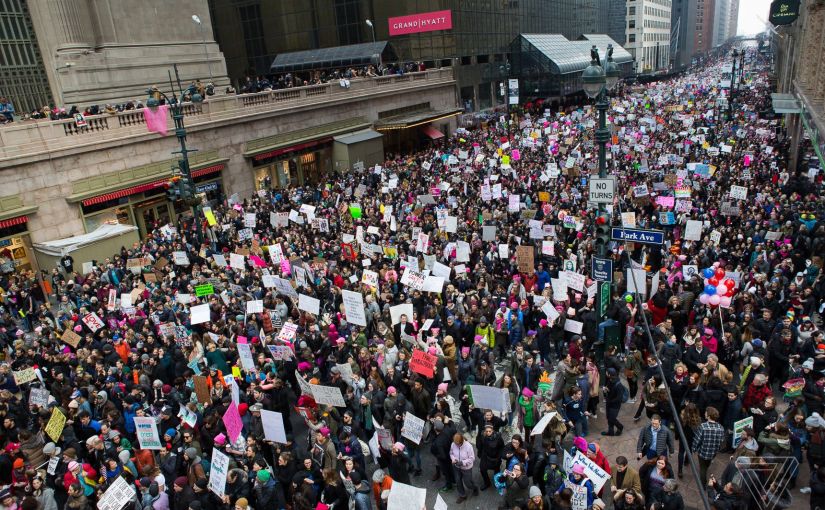I applaud the decision by voters in California to recall the judge who infamously gave a young man named Brock Turner a ridiculously short sentence for rape.
Late one evening in 2015, tourists in Stanford, California came across a young white man molesting a woman who lay unconscious on a sidewalk. They rushed to stop him, then held him till the police arrived. The next spring, a jury found Brock Turner, a freshman swimmer at Stanford University, guilty of three felony counts: assault with intent to commit rape of an intoxicated or unconscious person, penetration of an intoxicated person, and penetration of an unconscious person.
His sentence? Despite calls from the prosecutor for a strong one, in June of 2016, Judge Aaron Persky sentenced him to only six months in prison for this violent crime. When he was released in August of 2016, he had spent less than 3 months in jail.
“I think you have to take the whole picture in terms of what impact imprisonment has on a specific individual’s life. And the impact statements that have been—or the, really, character letters that have been submitted, do show a huge collateral consequence for Mr. Turner based on the conviction,” the judge is reported to have said at the sentencing hearing.
Had the woman he raped not suffered a huge “collateral consequence?”
“An outrage!” many media outlets proclaimed. People marched and carried signs. The internet and 24 hour news channels were filled with calls for change. Was this the case that would finally get people to approach sexual assault as a crime? After all, this young man raped a woman who was lying unconscious on the sidewalk.
But wait—another young, white, privileged sex offender had been released just a month before Turner’s sentencing, also after doing very little prison time. On August 28, 2015, Owen Labrie, a high school senior, was convicted of sexually assaulting a female classmate about a year before, at St. Paul’s Prep School in New Hampshire, an elite, church-affiliated school. He had been on trial for felony rape, which could have carried up to 20 years in prison, but the jury acquitted Labrie of that, instead assigning the lesser charge. The victim wasn’t identified by name in official documents because she was only 15 years old at the time of the sexual assault.
Labrie and his buddies, upperclassmen at the school, had been playing a game of conquest, competing to see how many freshman and sophomore girls they could deflower. He had convinced this girl that he really cared about her and so managed to earn a notch for his belt.
Before sentencing, Labrie’s mother, Denise Holland, submitted a letter to the judge asking for probation only, for her son. She wrote that Labrie had become despondent and suicidal as “so many years of dedication and hard work dissolved before him.” The judge ssentenced him to only six months in prison. When he was released in May of 2016, like Turner, Labrie had served only about half of that.
For speaking out, the young girl was harassed on social media for years, called all sorts of terrible slurs. And for this he served only a couple of months in prison.
That judge is still at the bench. He has not been recalled.
It is hard to believe, reading about these cases, that so much attention was placed on how a long sentence would damage these young men’s futures. The judges were completely drawn into imagining how these “otherwise promising” young men would suffer. Yet it was Turner who branded himself as a criminal, when he chose to take advantage of an unconscious woman. And LaBrie had turned his back on his own future when he chose to act the sexual predator.
There is something about a young, well-to-do white man that seems to beg that the courts consider his “promise.” But what sort of promise do these men hold, anyway? As far as I can tell, it is the promise of future sexual assaults on other unsuspecting young women. It is certainly not a promise for a future career as a scientist, college professor or priest.
At least, in these two cases, the men were found guilty of something. They will have to register as convicted sexual offenders for the rest of their lives. (One of them has reopened his case to try to get that requirement lifted.) The presence of a corroborating witness in one case and the age of the victim in the other demanded that something be done. Still, a few months in jail for possibly ruining the lives of these young women?
And although the perpetrators were arrested and found guilty, the pathetically weak sentencing is only half of the insult to these women. After stepping forward and filing charges, the women were tried by the jury of public opinion, and found by many of them to be almost as guilty as their rapists.The internet is full of vile comments about them, which anyone can find as a matter of record. No wonder so many women don’t get up the courage to speak up until many years have passed and they are perhaps in a more powerful position, or until they find strength in numbers.
Recently, women of the Air Force Academy have come forward to report that not only were several women raped by their colleagues over the past several years, but also that senior officials did little or nothing to punish the men. The women, meanwhile have been subjected to terrible hazing and mistreatment, in punishment for speaking up, ratting on their peers. Several female Air Force cadets resigned, rather than be subjected to the daily abuse. The perpetrators have gone on to graduate.
a more personal perspective
In my 30 or so years working in the corporate world, I was always thankful that I had escaped any sexual harassment in the workplace. I faced gender bias on getting a job or getting promotions, but I was never actually assaulted at work. I felt terrible for the women who suffered at the hands of powerful men, emboldened by their positions to take advantage of the women. But that does not mean I escaped the curse. As the Twitter hashtag #me too revealed, if you ask any woman, chances are she will tell you a story of how she or a relative or friend was sexually harassed or assaulted. My escape from sexual assault is only compared to many others that were worse.
In my sophomore year of high school, a fellow student began to follow me around school and asked me out repeatedly. I politely declined and asked him to quit following me. Instead, he followed me everywhere. He lived on another bus route, but he began taking my school bus in the afternoon and often walked behind me the three blocks from the bus stop to my home, then stood outside calling my name.
Junior year, senior year. Some evenings he would call me on the phone every 15 minutes, all evening long. My parents reported the situation to the police over and over again. They also spoke to the boy’s parents, who apologized and placed a lock on their home phone. But the boy kept following me and calling. It was horrible, unnerving to see that guy everywhere I went.
When I left for college 200 miles away, he transferred his interest to my younger sister, sitting outside the house in our rhododendron bushes and calling her name. One night she awoke to a man in her room, his hand over her mouth, telling her to be quiet. Our 80 pound yellow mutt, Charlie, had heard a strange noise, though, and came barking into the room. The intruder jumped out the window onto the porch roof and was gone. The police never figured out who it was. We were pretty sure we knew.
“Well, lucky you have a good dog,” the police said. “And the main thing is, no one was hurt.” And lucky he didn’t have a gun, like the young men in the most recent school shootings, whose justification for the shootings was that some girl had rejected their amorous advance.
Six or seven years after the man and the dog incident, it was the start of the fall semester of another of my sister’s sophomore year at the University of Illinois, Champaign-Urbana. A stiflingly hot, August day, she had spent many hours moving into a house she planned to share with three friends near the campus. That evening a thunderstorm was approaching, and at dusk her roommates all went out to watch the thunder and lightening move in across the corn fields. My sister, though, sweating profusely after a day of lugging around boxes, begged off the adventure. She put in another hour or so of unpacking, then lay down in the near 100 degree heat in her second story bedroom to rest. She fell asleep lying on top of her sheets, wearing only her underwear.
She awoke some time later to a hand across her face and a man on top of her. He had probably broken into what looked to him like an empty house, to rob stereos and anything else that looked interesting. Once in the house, he decided she looked like a nice plum to pick. He managed to pull off her underwear and was close to penetration when she fought him off.
And then he pulled out a gun. “Stop fighting or I’ll shoot,” he ordered, aiming the gun at her head.
When she continued to struggle, he pulled the trigger.
She cringed.
The gun misfired.
She took advantage of the attacker’s surprise to run screaming into another room, and he climbed back out the window he’d gotten in through.
It would be hours till her roommates got home. The phone was not installed yet, and no curtains had even been hung. Sure that the intruder would return to retrieve his pillowcases full of loot, which were lying in the hallway where he had abandoned them, my sister sat alone for hours in the dark at the kitchen table holding a butcher knife, not collapsing into tears until her friends returned home.
When the police finally arrived, they determined that nothing had actually been stolen, so they were not really interested in pursuing the incident. They made a few half-hearted efforts to find her attacker, but gave up after a few weeks, so there was no arrest, no trial. “You shouldn’t have had the window open,” they said. They told her, “at least he didn’t actually rape you,” and she was lucky the gun misfired.
We called her Wonder Woman and gave her silly Wonder Woman gifts, trying to emphasize how great it was that she stood up to the man; that she’d fought him off. The truth, of course, is that she’d have died on the spot if that gun hadn’t misfired. Her attacker was holding it inches from her head. The episode still haunts her; her counselor tells her she suffers from PTSD.
follow up
My sisters and I never saw our attackers put on trial. We spoke up. We tried to get justice. Police, family and friends all knew that sexual assault had happened, but no one was punished. I am excited at the new energy in the feminist sphere. #metoo and #timesup are both powerful movements. I am excited that the ERA – the equal rights for women – constitutional ammendment is getting closer to passage. But I fear that few, if any of the many sexual harassers outed in 2017 and 2018 will ever be brought to a criminal trial, much less found guilty, and even less likely punished with jail terms. I know deep inside, that nothing will change significantly until the penal system acknowledges the fundamental unacceptableness of gender violence.
Both my sisters are still haunted by their experience of waking up with a strange man on top of them. The Air Force cadets and women of our armed services who have been assaulted and then tormented for speaking up, have seen their entire life changed. The victims of Turner and Labrie likely still relive their experiences, as well. As will the actresses and production assistants assaulted by Weinstein, Lauer and Rose. The lives of these women will never be the same; their peaceful, happy futures were stolen by powerful men, fellow cadets, Turner and Labrie, and unknown men who crept in windows in the middle of the night.
The U. S. in the last three years has seen an explosion of complaints about sexual misconduct. Millions of women and men wrote and spoke and posted about Bill Cosby and Hollywood moguls and high level politicians harassing and even assaulting women and girls. But after a period of time for the outrage to die down, how much will change? Despite more than a dozen accusers, Bill Cosby’s first trial ended in a mistrial. There is some hope though, from the fact the second trial ended in a guilty verdict.
But will Donald Trump or Charlie Rose or Matt Lauer—and on and on—ever face legal repercussions for their alleged misconduct? Or will powerful men continue to take advantage of attractive young women, and escape, even if found out, with little more than a slap on the wrist as punishment? Only days days after Matt Lauer was fired, I already heard a news commentator wondering aloud about how the accused men could be helped to salvage their careers. The speaker—on a radio news program—seemed full of sympathy at how an otherwise “brilliant career” was now damaged. Bah! What about the women who gave up on their careers because of the harassment and general hostility they faced in the workplace? Women who decided it wasn’t worth it, and went back to their hometown.
After all the revelations about these famous men, I am heartened by the voters’ message about Turner. Now, we should turn to the Labrie case, and keep up pressure for meaningful trials and sentencing for the famous entertainment industries harassers.
It is clear from the Turner and Labrie cases that accusations are one thing; appropriate punishment is something else. Somehow when it comes to the trial, there always seem to be people who convince themselves that the women are probably exaggerating. Or that they likely had consensual sex then changed their mind and decided to take some man for all the money she could get. Or who just don’t want to damage some “promising” man’s career for something that they consider “no harm done.”
What we see is that whenever the public is drawn into a highly publicized sexual assault case, there is some outrage for a while, but there is no institutional change. The Hollywood led outrage is stronger than most I’ve seen, but will it change anything? Most of the perpetrators may be seen as successful men who just made some minor error in judgement. Turner and Labrie have gone on with their lives. The high profile sexual assaulters will likely talk their way out of prison terms. I hope a few cadets will lose their commissions. But their victims and the many other victims, like my sisters, likely wake up in the middle of the night from time to time, shaking and trembling with dread.
*
“I believe that you are not the angel as portrayed by your counsel and the letters of support submitted on your behalf,” the Judge told Owen Labrie at his sentencing. “But neither are you the devil as portrayed by the prosecution.”
Was Labrie a devil? An angel? I say, it’s not a relevant question. Neither he nor Brock Turner was either mythical creature. Devils and angels are religious/imaginary terminology, and do not belong in a judicial proceeding. But speaking of angels and such, why are churches all over our country not speaking up? The tendency to believe the man, even against multiple accusations, or to minimize the trauma to the woman, is part of a general attitude—like “separate but equal.” No real harm done…
To my mind, if they are not part of the solution—whether they are churches or corporate CEO’s or judges—they are part of the problem. #times up on sexual assault.
So let us conclude with, it is #timetodotime. Women will never achieve social and workplace equality if men can assault with impunity. A slap on the wrist is not enough. Let’s make sure these men are convicted and actually sent to prison for their misdeeds. This means it can’t be just women who are outraged. Upstanding men, too, must speak up. And together we must demand trials and suitable sentencing.









